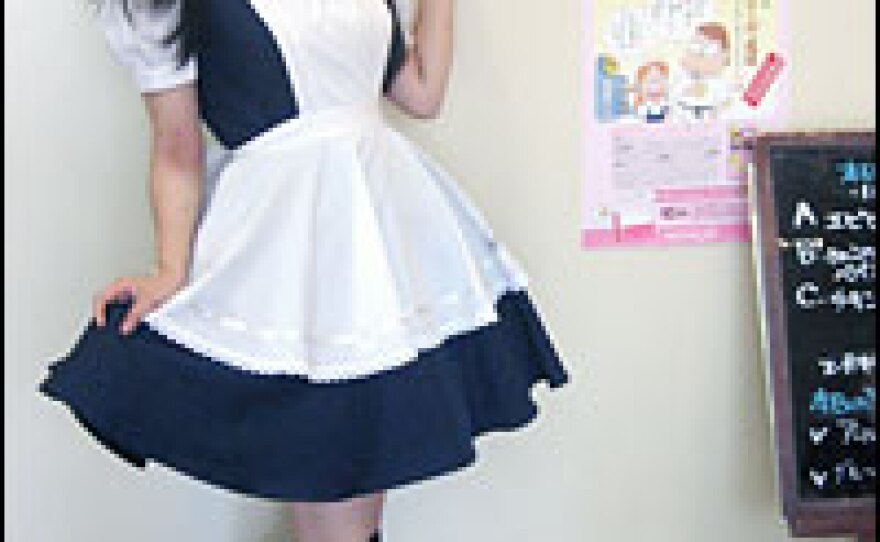
At the recent Tokyo Game Show, the crash and ping of computer combat echoed around a cavernous hall, as hundreds lined up to be the first to try newly released games. For fans, computer gaming isn't so much a hobby as a way of life, offering people a ready-made community and, in some cases, a new identity.
Take 24-year-old Kai. Sengoku Basara is her favorite computer game. An office worker by day, Kai spends her weekends dressed up as a 16th-century samurai, Chosokabe Motochika. Her chest is bound flat. She wears a gray wig, armored cuffs, high black boots, a red satin jacket and a red eye patch over one eye. Other women, all dressed as computer-game versions of samurai, surround her. "I don't want to be a man," she says, "I just like cosplay" -- short for costume play.
"I'm a nerd. This is Japan's new culture. To me, it's just one of the ways of showing your creativity," Kai says.
Kai is part of a new Japanese tribe -- the otaku, or nerd. Once the target of playground insults, otaku are now becoming an economic force to be reckoned with. Japan's nerds are out and proud.
Almost 200,000 people trekked out to a suburban convention center on their annual pilgrimage to the game show. Many dressed in elaborate hand-sewn costumes. All devote time -- and money -- to their passion.
The otaku market generated an estimated $4 billion in 2004, says Ai Ohara of the Nomura Research Institute, which has studied the otaku phenomenon.
And the Tokyo district of Akihabara is proof of geek spending power. Here, computer-game theme songs waft out of shops piled high with gadgets in an exuberant celebration of geekdom. Indeed, Japan's nerds, with their exacting demands, are driving consumer trends.
Ohara notes that industries monitor otaku Web chats and try to create new products based on the demands they see.
Geek chic became hot in the wake of the filmTrain Man, which unleashed a craze for windbreakers and thick spectacles. The movie starts with a chance sighting on a train between a typical nerd and his dream woman.
The encounter eventually spawns a first, tongue-tied phone conversation -- and a budding romance. Each step is avidly followed by friends online, and eventually the geek gets the girl.
But celluloid fantasies aside, some extreme Japanese nerds are so lost within their own worlds, they simply can't communicate with the opposite sex. And so another innovation to serve the geeks was born: the maid cafe.
As the door to the Mailish cafe swings open, women in French maids' costumes curtsy. They greet male customers with "Hello, master."
Here men live out their fantasies -- being waited on hand and foot by maids whose costumes come straight out of erotic comic books. This fantasy world has been taken one step further, with cartoon pictures of each of the real-life waitresses lining the walls.
Real-life Sayaka has a demure smile, a short black skirt and a subservient bow, while her cartoon version clutches a pink toy rabbit. She has worked here for more than three years. Sayaka is a "cosplayer," too, and that's why she enjoys this job.
"I would describe my hobbies as fantasy, as I want to be something which I'm not. As for this cafe, it's 70 percent reality and 30 percent fantasy," Sayaka says.
She admits that her parents don't understand, and that they've given up on her. And her decision to devote herself to her fantasy world of costume play -- and a kind of perpetual adolescence -- is a conscious rejection of her parents' lifestyle.
There's a dark subtext, too: Maid and butler cafes are manifestations of the dysfunctional gender politics among Japan's nerds, and of a predilection for buying subservience. Geeks may now be chic in this otaku nation, but their alienation from traditional norms speaks of social upheavals ahead.
Copyright 2022 NPR. To see more, visit https://www.npr.org. 9(MDAzMjM2NDYzMDEyMzc1Njk5NjAxNzY3OQ001))






